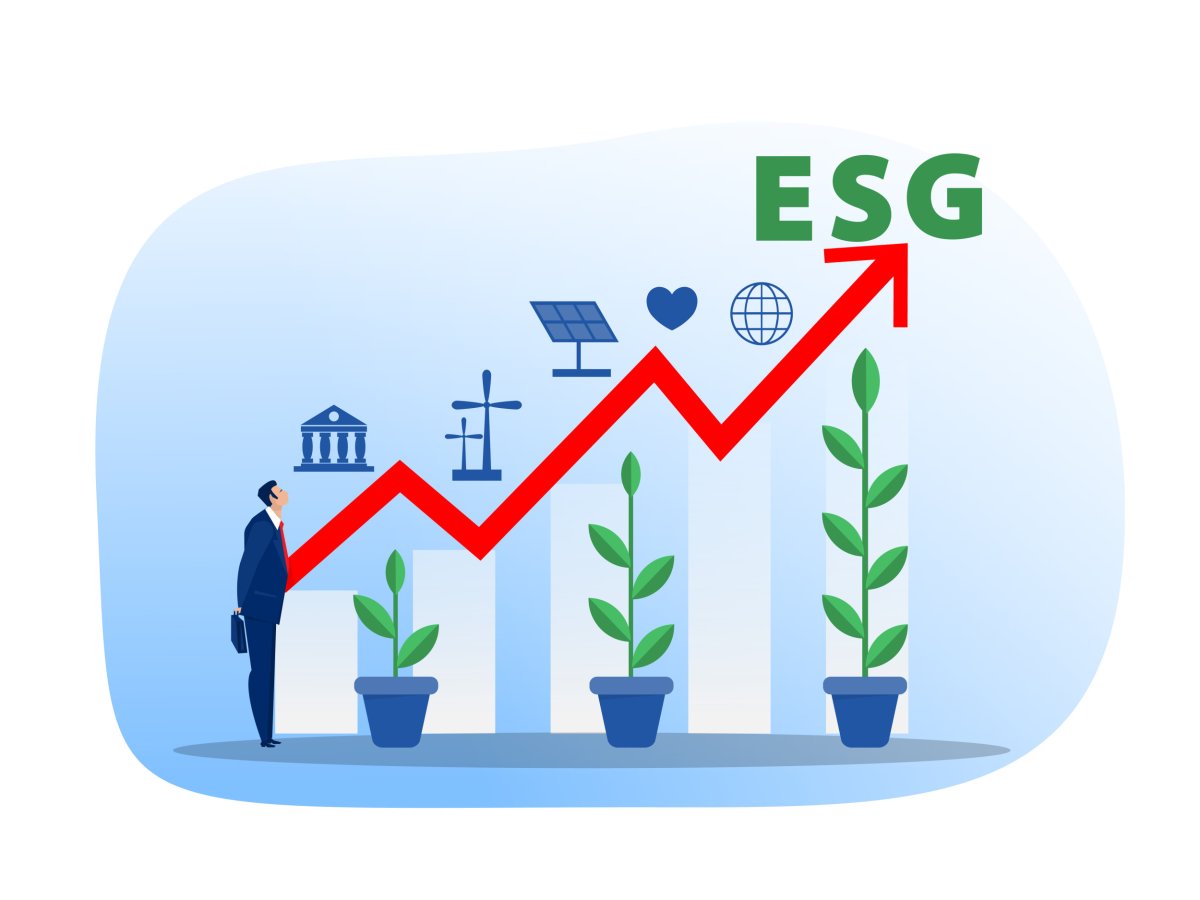For nearly two decades, major corporations have touted principles of "socially conscious" investing, known as ESG—short for environmental, social and governance factors. Ostensibly, they've focused their businesses on these concerns as well as profits.
But Republicans have now taken aim at this approach, extending America's culture wars into the private sector. They call ESG investing "woke capitalism" and portray it as an illustration of Democrats and liberals trying to impose their views on the rest of society. Last Wednesday, Senate Republicans, helped by two Democratic defectors, voted to block a Labor Department rule allowing retirement plan managers to include E.S.G. considerations in their investment plans. The move is likely to draw President Biden's first veto.
You may be surprised to hear me say this, but Republicans are right about ESG, though they're right for the wrong reason.
The problem with ESG isn't that it's "woke capitalism." It's that corporate money has corrupted politics so much that our democracy can't effectively deal with many environmental and social concerns.

CEOs and pension fund managers who tout their records on ESG are engaged in greenwashing, designed to burnish their brands and attract investors (including retirees) who want to believe they're doing good while doing well.
But investors don't want to do good at the expense of doing well. They'd do more good donating that money to nonprofits seeking to protect the environment and advance various social causes.
Corporations and institutional investors won't deviate from maximizing short-term profits and shareholder returns unless required to do so by law. And even then, they'll do so only when the penalty for violating the law multiplied by the probability of getting caught is higher than the profits from continuing with the illegality.
If anything, the soothing corporate and Wall Street talk about ESG is designed to forestall such laws by creating the false impression that corporations are already doing what needs to be done for the environment or social issues, so there's no need for more laws or regulations.
In 2019, the Business Roundtable, one of Washington's most prestigious corporate groups, issued a widely publicized statement expressing "a fundamental commitment" to the wellbeing of "all of our stakeholders" (emphasis in the original), including employees, communities, and the environment. The statement was widely hailed as marking a new era of ESG.
Since then, the Roundtable and its members have issued jejune statements about all they've done to reverse climate change and alleviate poverty.
Not incidentally, these were priorities in President Biden's "American Families Plan." But the Business Roundtable didn't lobby for the bill. It lobbied against it.
Hypocrisy? Only if you believed the Roundtable rubbish about corporate social responsibility and ESG in the first place.
The pressures on companies to maximize profits and share values, social responsibility and ESG be damned, are coming from shareholders, top executives (whose pay is linked to stock performance), and from retirement plan managers, even those who tout their commitment to E.S.G.
It's tempting to chalk this up to "greed," but neither corporations nor retirement plans are capable of such emotions. They aren't people, no matter what the Supreme Court says. They're bundles of contracts.
The specific people who enter these contracts on behalf of corporations, shareholders, and retirees have no interest or expertise in the environment or in any particular social issue. They're simply doing what they understand to be their job: maximizing shareholder returns.
If we want these transactions to be better aligned with public needs rather than private profits, laws must change and penalties be increased. Corporate taxes must be raised to fund public investments in non-fossil fuels and social safety nets. Regulations must be strengthened to protect the public.
But laws and regulations won't change if corporations continue to spend vast sums on politics.
The most telling trend over the last three decades has been the growing share of the economy going into corporate profits, generating ever-greater compensation packages for top executives and ever-higher payouts for investors, and the declining share going to most Americans as wages and salaries.
Much of the reason is the increasing amounts of corporate and Wall Street money going into the campaigns of lawmakers who cut corporate taxes, enact corporate subsidies, and stop or dilute regulations.
The divisive blather over ESG is only masking these trends.
The most socially responsible action pension plans and corporations can take to allay environmental and social problems is to refrain from putting money into politics, and to support campaign finance reform.
Robert Reich is professor of public policy at the University of California, Berkeley, and the author of Saving Capitalism: For the Many, Not the Few and The Common Good. His new book, The System: Who Rigged It, How We Fix It, is out now.
The views expressed in this article are the writer's own.
Uncommon Knowledge
Newsweek is committed to challenging conventional wisdom and finding connections in the search for common ground.
Newsweek is committed to challenging conventional wisdom and finding connections in the search for common ground.
About the writer
To read how Newsweek uses AI as a newsroom tool, Click here.








